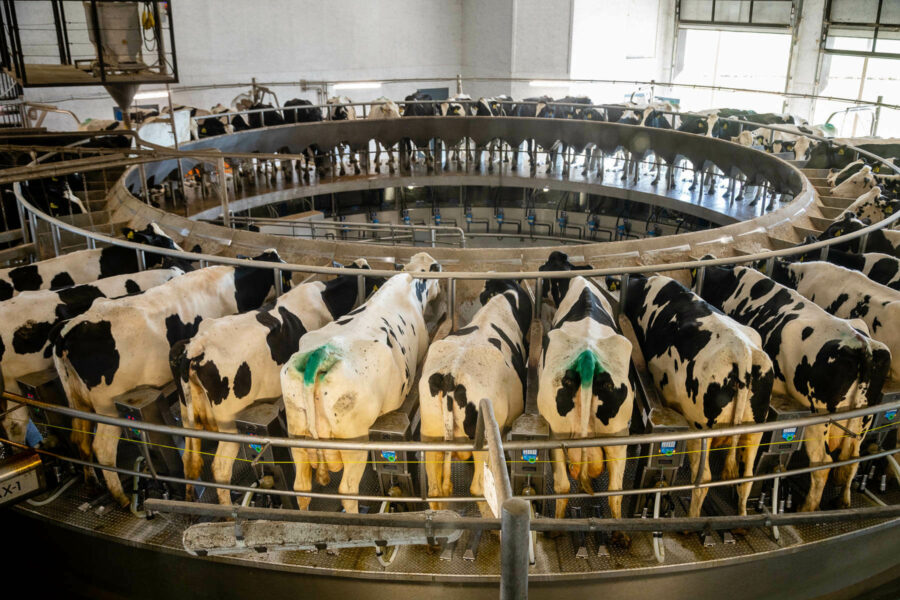A growing dairy looks to the future
Fair Hill Farm has grown in size and its commitment to stewardship

In 2017, Fair Hill Farm rebuilt its milking parlor and took a leap into the future. The organic dairy replaced a decades-old design called a double-six herringbone, milking a dozen cattle at a time, with a massive rotary parlor with stalls for 50 cows and state-of-the-art data-gathering electronics. Rotating once every 11 minutes, the system can milk the farm’s 500 purebred Holsteins in under three hours. Before, Fair Hill’s parlor was milking cows 24 hours a day.
“If you’re still in the dairy industry today, you’re milking more cows than you did 25 years ago,” said Ed Fry, on a recent visit to the farm.
Fry inherited the farm near the Chester River on Maryland’s Eastern Shore from his father Edwin C. Fry. More recently, he handed off management to his son Matt Fry and daughter-in-law Megan. Still helping out with the family business, Ed said that managing the farm involves systems of herd health, waste management and stewardship of the farm's cropland, "so that it'll be here for my three grandsons."
Due to the number of cows on the dairy, and the fact that they don’t graze all year, Fair Hill Farm is regulated as a concentrated animal feeding operation, or CAFO. This means that Fry and family must manage the manure and wastewater produced on site to prevent pollution from entering the nearby Chester River.
Additionally, the farm employs a number of conservation practices.
- Erosion control: The dairy grazes its cattle rotationally and fences them out of streams. It leaves buffer strips on the edges of its fields and uses cover crops for erosion control (as well as forage).
- Water conservation: The dairy recycles water extensively, says Fry, and uses water up to three times, such as to flush manure from stalls, before discharging it into on-site retention ponds.
- Nutrient control: Fair Hill Farm practices manure injection, which reduces the amount of fertilizer applied and the chance of nutrient pollution reaching waterways.
- Preservation: The farm has protected over 750 acres of cropland from development by an easement through the Eastern Shore Land Conservancy.
Fair Hill Farm now produces over 40,000 pounds of milk every day as a supplier for Horizon Organic.
A herd of 500 cows was considered large when Fry was a child, but he notes how times have changed for dairy farmers.
"Today we're not a big dairy," he said.. "Those that are preparing for the future are becoming more efficient."

Comments
Hey Art, we would recommend checking your local grocery store or dairy farm. Search for unhomoganized and non-homogenized. Good luck!
Where can I buy unhomoganized milk?
Thank you!
Your comment has been received. Before it can be published, the comment will be reviewed by our team to ensure it adheres with our rules of engagement.
Back to recent stories